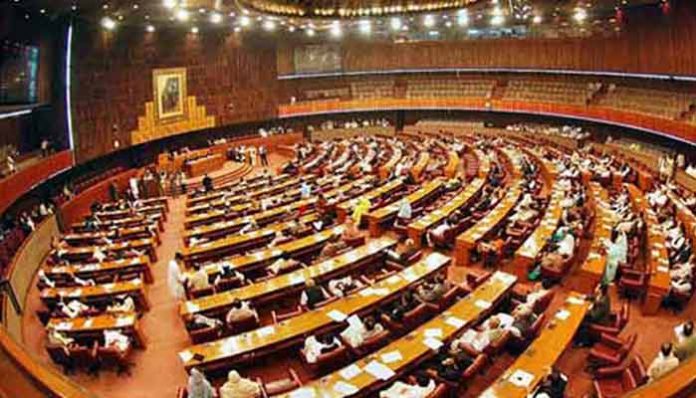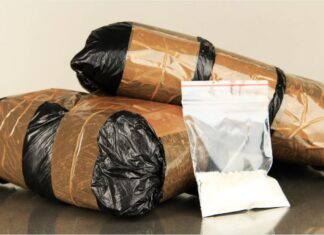ISLAMABAD: The Senate Standing Committee on Science and Technology has strongly criticized the Ministry of Science and Technology, highlighting that none of its 17 departments are functioning effectively.
During a meeting on Monday, chaired by Senator Kamil Ali Agha, the committee expressed serious concerns about the ministry’s overall performance.
“There are 17 departments in the Ministry of Science and Technology, but not a single one is working properly,” lamented Senator Agha. He emphasized that the current state of affairs is unacceptable and that the committee will not allow it to continue unchecked.
One of the focal points of the discussion was the Pakistan Halal Authority (PHA), an attached department of the Ministry of Science and Technology, which was established in 2016. Despite the passage of over seven years, the authority has failed to make a significant impact, largely due to bureaucratic hurdles and negligence from senior officials within the authority and ministry. It took years for the PHA’s service and business rules to be approved, and even those have remained largely unimplemented.
Senator Agha questioned the current staffing and recruitment processes at the PHA during the meeting. Officials revealed that while a total of 100 posts are sanctioned, the PHA is currently operating with only 38 officials, including six inspectors. The process to fill the remaining sanctioned posts is still underway. The committee recommended that inspectors should possess relevant experience and a diploma in Halal certification.
To date, the PHA has registered 16 local Halal certification bodies, one foreign certification body, and several slaughterhouses, primarily in Punjab.
In other discussions, officials from the Ministry of Science and Technology proposed amendments to the Pakistan Halal Authority (PHA) Act and suggested a name change for the Scientific and Technological Development Corporation. They claimed that the corporation’s financial situation had improved compared to the previous year, reporting a budget of Rs250 million and sales of Rs365 million. The corporation, operating through the Pakistan Council of Scientific & Industrial Research (PCSIR), produces and sells products, including those used to spray pesticides on fruits and vegetables, without imposing any financial burden on the federal government.
Senator Agha also addressed the declining agricultural yields in Pakistan, attributing the drop to diseases affecting crop production. Senator Afnan Ullah raised additional health concerns, noting the emergence of the previously unheard-of “blue tint allergy.” He also identified white sugar and white salt as major health hazards, leading to widespread cases of diabetes and hypertension in the country. “White sugar is poison; it is made white by adding chemicals,” he stated.
The Senate Standing Committee on Science and Technology also deliberated on the Private Member’s Bill titled “Pakistan Halal Authority (Amendment) Bill, 2023.” The meeting, chaired by Senator Kamil Ali Agha, included a presentation by Senator Dr. Zarqa Suharwardhy, the bill’s mover, who explained that the bill aims to strengthen the PHA by providing guidelines for the enforcement of Halal standards.
Additionally, the committee was briefed on the role and performance of the National Institute of Electronics (NIE) and discussed the economic potential of cannabis. PCSIR Chairman Dr. Syed Hussain Abidi informed the committee that medicinal cannabis represents a $30 billion market worldwide and is in high demand. PCSIR has successfully developed various cannabis products, including hemp cinnamon tea, hemp ginger tea, hemp jams, hemp cookies, and hemp curative oil and shampoo. Cannabis has applications in textiles, food, and the construction industry, with a market potential of $4 to $5 billion.
Recognizing its economic significance, Pakistan has established the Cannabis Control and Regulatory Authority (CCRA), with the Board of Governors for CCRA finalized. The Secretary of the Defence Division will serve as chairperson, with the Chief Secretaries of each province as members. The committee recommended that two Senators also be included in the Board.
Finally, the committee discussed the performance of the Science, Technology, Engineering, and Mathematics (STEM) program under the Pakistan Science Foundation (PSF). Senator Kamil Ali Agha expressed concern that PSF has utilized only 10% of its allocated funds for the STEM project. Dr. Saqib Nasir, Project Director of STEM, informed the committee that 50 labs have been established in public schools at a cost of Rs. 50 million under the STEM project. However, a significant portion of the funds remained unused due to a ban on the purchase of equipment. PSF is collaborating with China on the Pak-China Joint Working Group to further integrate STEM into the national curriculum.
The committee decided to request a detailed briefing on STEDEC, which is undergoing restructuring as IRADA, in the next meeting.
























